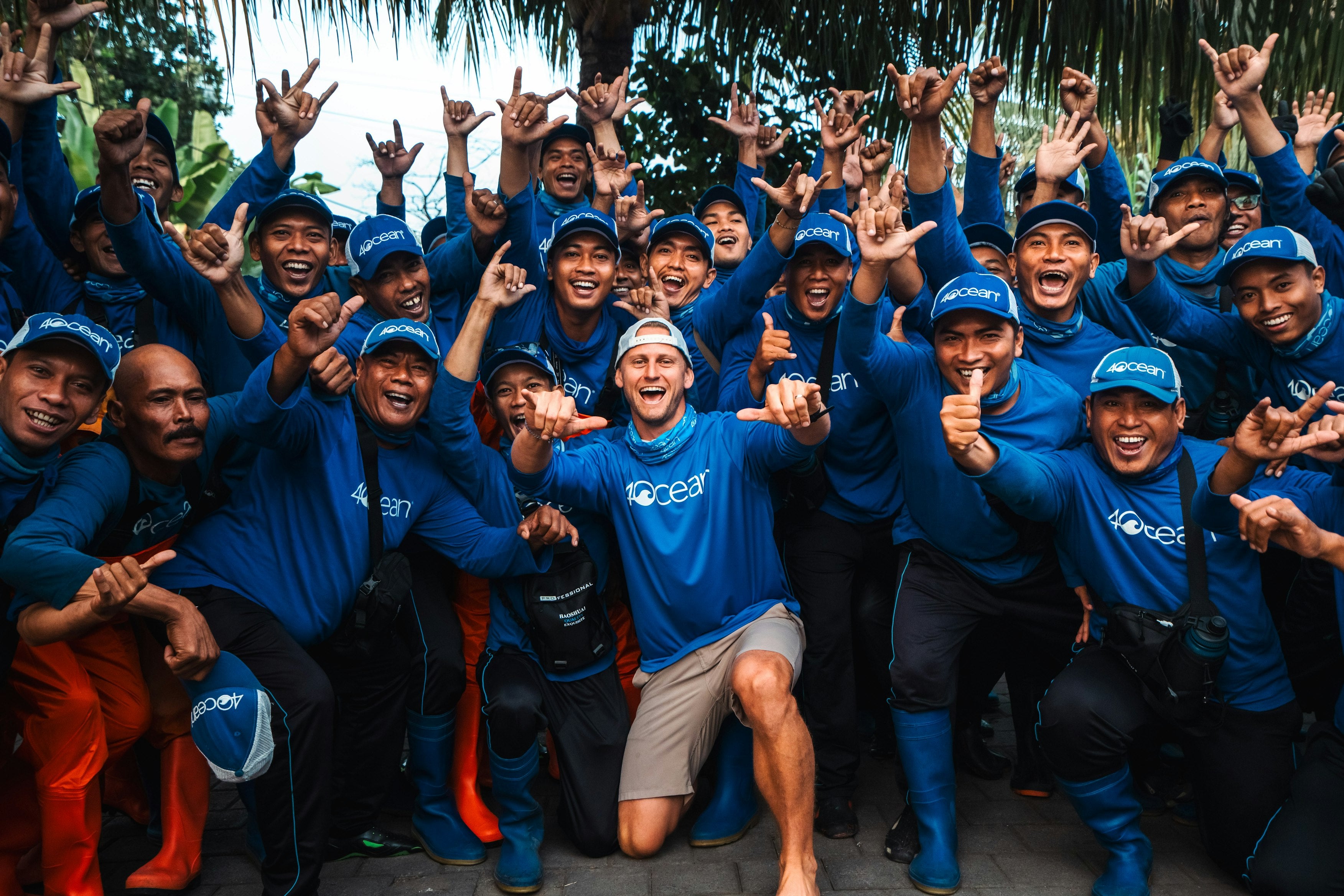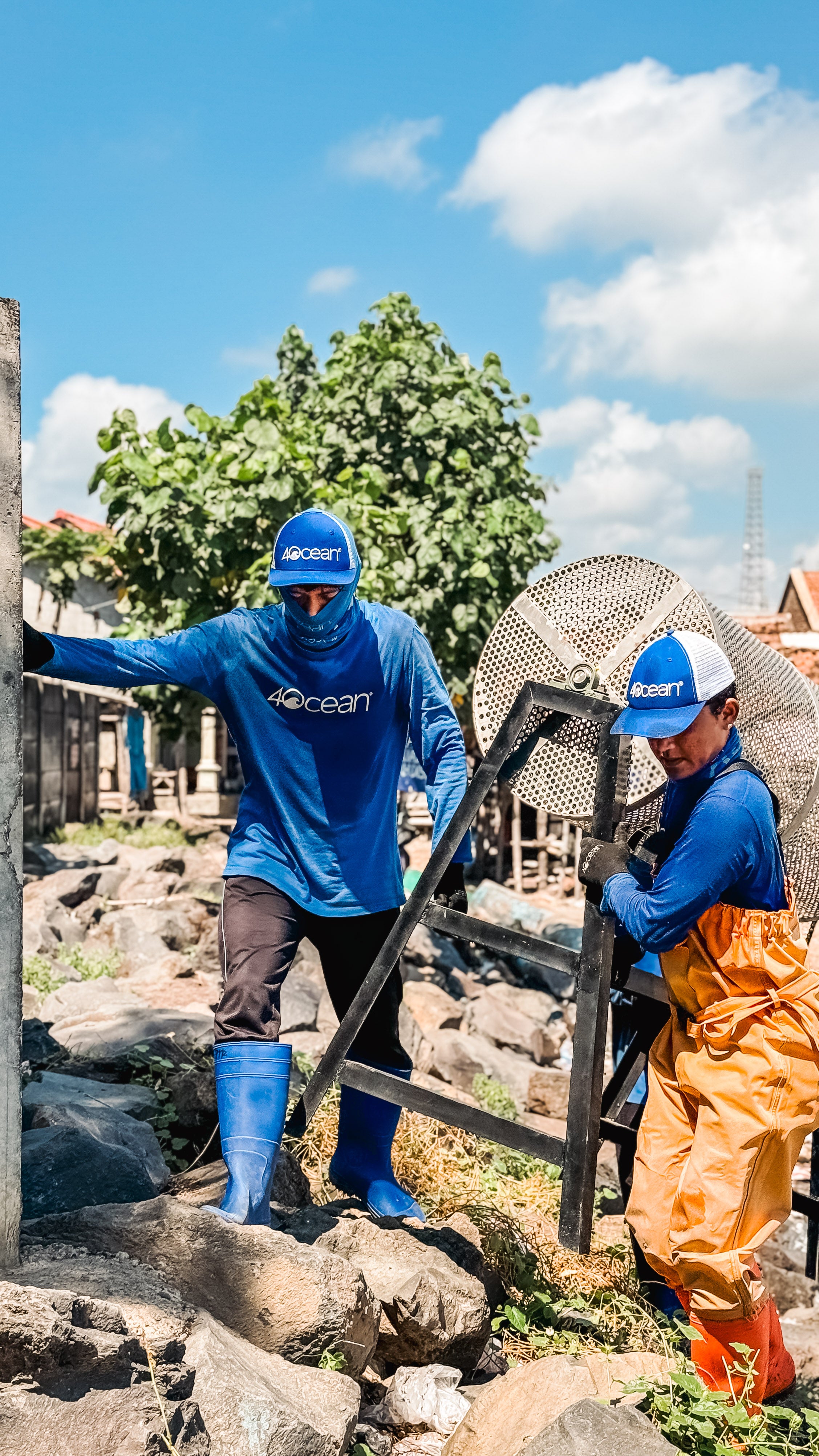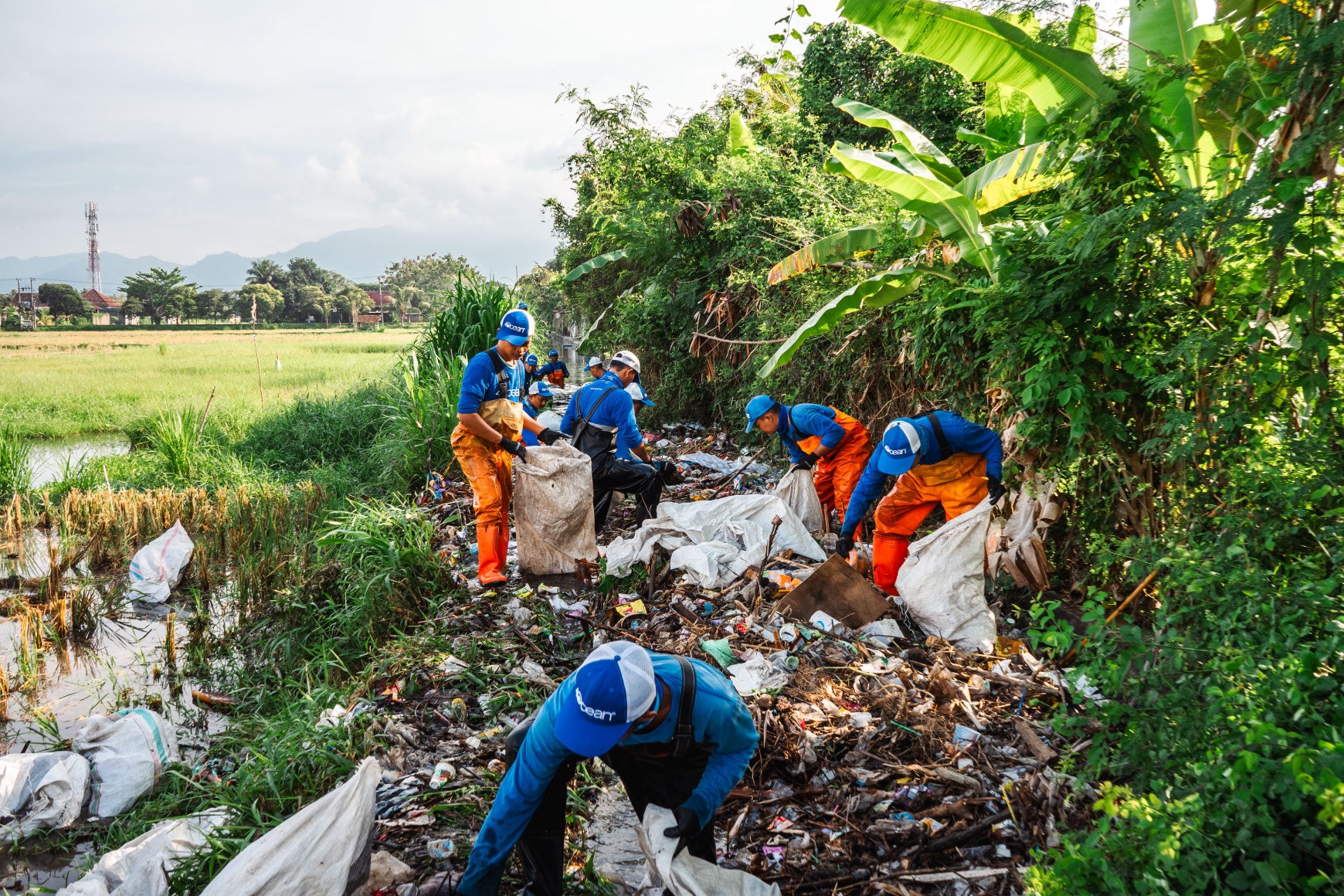5 MIN READ
12-19-2024
Cleaning Bali’s Rivers: The Riverboom Team’s Fight Against Plastic and Baby Diapers
Kubik, 4ocean Bali Content Correspondent
On December 18, 2024, the Riverboom Team embarked on their daily mission to clean Bali’s polluted waterways, including the Hijau Gading River, Wijaya Riverboom, and Lelateng Dam. These areas have long been plagued by plastic waste, but on this day, the team was met with a shocking and persistent problem: a pile of baby diapers accumulating at the Lelateng Dam.
Despite the difficulties brought on by frequent rains and rising water levels, the team pressed on, focused on removing the hazardous waste and restoring the river’s health.


The cleanup began early, with the crew—including Ahmad Akbari, Misni, and Ziyad—targeting the worst-hit locations where the boom systems had captured waste. While the nets collected large amounts of plastic and debris, the team noticed a disturbing new trend: large quantities of baby diapers, particularly at the Lelateng Dam. These diapers were not only foul-smelling but also posed significant environmental threats. The chemicals and bacteria they contained could contaminate the water and harm local wildlife, making their removal a high priority.
In total, the Riverboom Team collected 1,056.89 lbs of waste across three locations. This included PET bottles, plastic cups, tarpaulins, and, most alarmingly, baby diapers. The crew was particularly concerned about the diapers, which had been found routinely at the Lelateng Dam, and were now threatening to obstruct water flow and potentially lead to flooding if left unchecked.
“The diapers are a huge concern,” said Misni. “They’re not just an eyesore; they’re a real danger to the river’s ecosystem. We can’t let this continue.”

Despite the challenging conditions brought on by frequent rain and flooding, the Riverboom Team didn’t let up. They adjusted their methods based on the water levels, sometimes using small boats or canoes to access waste caught in the nets. “The canoes are tricky,” said Ahmad Akbari, “especially when the trash starts piling up. We need to balance it carefully, but we’ve learned to work together and get the job done.”
Their perseverance is evident in every step, from manually checking nets to collecting the waste by hand, ensuring no piece of trash is left behind. The crew’s resilience in these tough conditions shows their unwavering dedication to cleaning the rivers and protecting Bali’s fragile ecosystems.
The Riverboom Team’s work doesn’t just involve picking up trash. It’s about raising awareness and encouraging proper waste management among the local communities. The persistent problem of residents disposing of household waste in the river continues to be a major issue, with many relying on the waterway as a last resort.
“The river has become a dumping ground for some residents,” Ziyad said. “Until we address the root causes of this waste, we’ll be fighting this battle every day.”
The Riverboom Team’s work in December 2024 was a significant step forward, but the battle against plastic pollution in Bali’s rivers is far from over. As the team continues to monitor the booms and clean the waterways, their efforts highlight the need for long-term solutions to waste disposal in the region.
With more nets being installed across Bali, the Riverboom Team remains committed to their mission, proving that every day spent cleaning is a day closer to preserving the health of the rivers—and the communities that depend on them.










